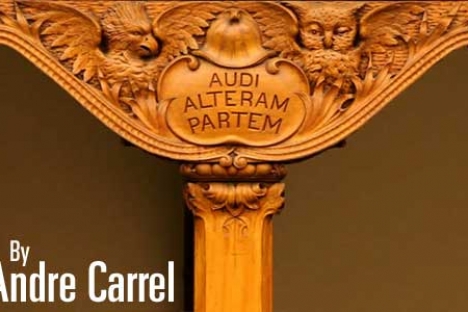Column: Challenges for voters -- and candidates
We can debate whether holding an election now is opportune or opportunistic. We have had three referendums in the past 15 years on the subject of our electoral system, and we have decided to leave things as they are. Debating the timing of an election is part and parcel of our preferred system.
Having decided to maintain the system does not mean that there is no room to reflect on the strategies used in the pursuit of our vote. Political parties have been central to elections for generations, but there is now a growing focus on party leaders, on their personalities. One is as likely to hear people proclaim that they will vote for Joe than voting for the party of which Joe is the leader, much less the local candidate sponsored by Joe’s party.
The likely outcome of this election, as has been the case in nearly 90 percent of general elections since 1903, is that a majority of citizens will have cast their vote for a party other than the one winning the prize of forming government. The reality of our electoral system is that none of the parties contesting this election will secure the support of a majority of the votes cast. A party may gain a majority of seats in the Legislature on the strength of a plurality of votes, but that does not amount to a mandate from “the people”, for “the people” is a hodgepodge of views, opinions, beliefs, tenets and ideologies.
The challenge facing all successful candidates is to find a reasonable balance between loyalty to the party and accountability not only to supporting voters in their constituency, but to all citizens – those who voted, those who didn’t, and those not entitled to vote. An MLA has a responsibility for, and is accountable to, all of the constituency’s residents,
We are witnessing, in other jurisdictions, the dramatic consequences resulting when elected representatives place deference and loyalty to The Leader above all other considerations. That style of politics has the potential to open a wide rift not only within a legislative assembly, but also within a community, even within individual families.
We cannot know what kind of government will emerge from the election: majority, minority, or coalition. The last provincial election confirmed that point. It has also become prevalent for party leaders to resign following a disappointing election result. However, from a voter’s perspective, having cast a ballot for a losing party or a bailing leader does not in any way diminish that voter’s standing as a citizen.
The ideal candidate (from my point of view) is a candidate with the demonstrated capacity to not only project the party’s principles, policies, and objectives, but to also understand that the views and priorities promulgated by others have legitimacy. The challenge, for my ideal candidate, is to recognize that there is more than one aspect to any if not most questions. The task of a legislator is to avoid the temptation of winner-take-all opportunities. The way of democratic politics is not to find ways to impose a preferred solution on the rest of humanity. Democracy’s challenge to the politicians we elect is to bargain for an arrangement with which few people may be elated, but which most people will accept as a reasonable compromise.
My problem (and yours) is having to decide who that candidate is.
























